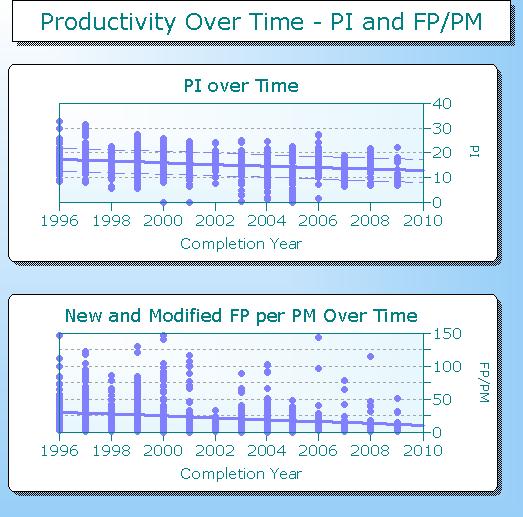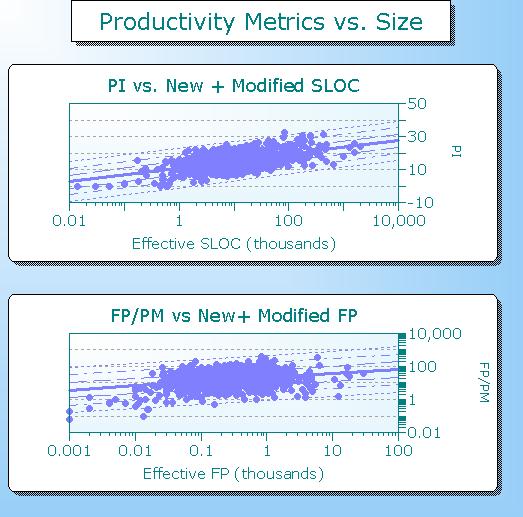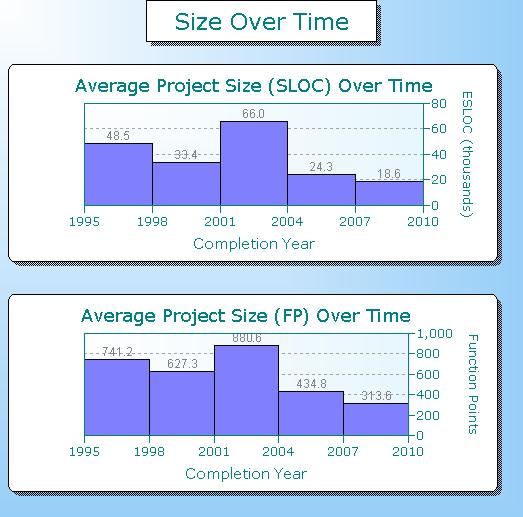Poll: Why Does Productivity Increase With System Size?
On our Software Productivity Declines Over Time post, ISBSG's Peter Hill left an interesting comment:
... your findings that 'average productivity increases with project size' might raise a few eyebrows, but the ISBSG data produces the same finding. Of course we only have data on projects that were completed. I wonder about the incidence of abandonment of large projects.
The QSM database shows a positive correlation between system size and productivity. The following chart shows PI vs. System Size regression fits for 9 different application domains (Business, System Software, Process Control, Telecom, Scientific, Command & Control, Avionics, Microcode, and Real Time). Regardless of domain, average productivity increases with system size:
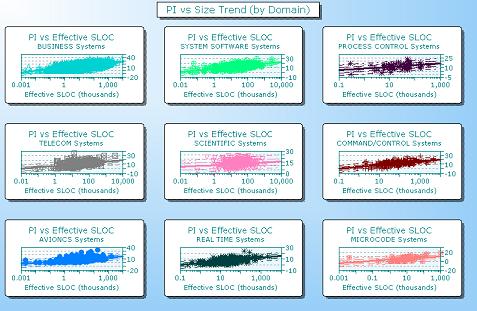
In the SLIM-Estimate user's guide, we speculate about possible explanations for the relationship between productivity and system size:
Small systems tend to have lower average PIs than large systems. We can only speculate as to the reasons, but two important influences may be management influence (the way large and small systems are planned, managed, and funded) and economies of scale.

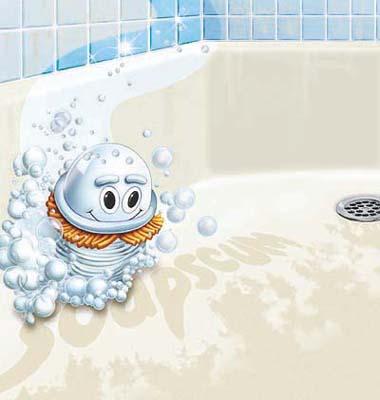 Back in great-Grandma's time, cleaning was a labor intensive endeavor. Rugs were swept once or twice a week and taken outside and beaten by hand once a year. Those cheery little scrubbing bubbles weren't around to whisk the pesky soap scum from our bathtubs -
Back in great-Grandma's time, cleaning was a labor intensive endeavor. Rugs were swept once or twice a week and taken outside and beaten by hand once a year. Those cheery little scrubbing bubbles weren't around to whisk the pesky soap scum from our bathtubs - 